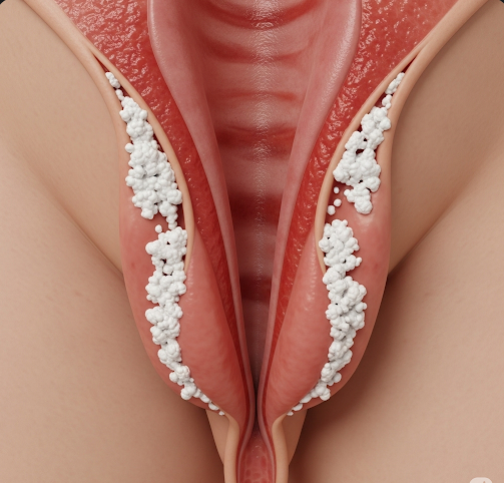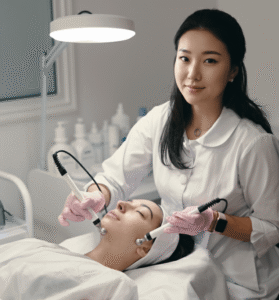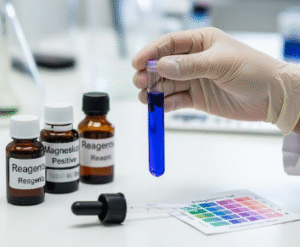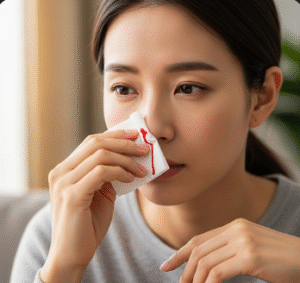Overview
Vaginal thrush, medically known as vulvovaginal candidiasis, is a common fungal infection caused by the overgrowth of Candida species, primarily Candida albicans. It affects the vaginal area and surrounding tissues, leading to discomfort, itching, and abnormal discharge. In South Korea, vaginal thrush is widely recognized and effectively managed through advanced diagnostic methods, antifungal therapy, and preventive education. Healthcare providers focus on early detection, proper treatment, and addressing underlying causes to ensure symptom resolution and prevent recurrence.
What is Vaginal Thrush?
Vaginal thrush occurs when the natural balance of microorganisms in the vagina is disrupted, allowing Candida fungi to multiply excessively. This leads to inflammation, irritation, and the characteristic symptoms of infection. Vaginal thrush can be acute or recurrent and may affect women of all ages, though it is most common in sexually active women and those with certain medical conditions. South Korean gynecologists employ clinical examination, laboratory testing, and patient counseling to provide precise diagnosis and effective treatment.
Symptoms
Symptoms of vaginal thrush include:
- Intense itching and irritation of the vaginal and vulvar area
- Redness, swelling, and inflammation of the vulva
- Thick, white, clumpy vaginal discharge resembling cottage cheese
- Pain or discomfort during urination
- Pain during sexual intercourse
- Burning sensation or soreness in the vaginal area
- Mild odor in some cases
Recognizing these symptoms early allows for timely medical intervention, reducing discomfort and preventing complications.
Causes
Vaginal thrush is caused by an overgrowth of Candida fungi, which are normally present in small amounts in the vagina. Factors that contribute to this overgrowth include:
- Antibiotic use, which can disrupt the natural vaginal flora
- Hormonal changes, including pregnancy or use of hormonal contraceptives
- Uncontrolled diabetes or high blood sugar levels
- Weakened immune system due to illness or medications
- Poor hygiene or prolonged moisture in the vaginal area
- Sexual activity with an infected partner
- Stress or lifestyle factors that affect immunity
In South Korea, physicians evaluate underlying causes to provide targeted treatment and prevent recurrence.
Risk Factors
Certain factors increase the likelihood of developing vaginal thrush:
- Women with diabetes, particularly if blood sugar is poorly controlled
- Immunocompromised individuals, including those with HIV/AIDS or on immunosuppressive therapy
- Pregnant women due to hormonal and immune changes
- Use of antibiotics or corticosteroids
- Hormonal contraceptive use, including oral contraceptives
- Obesity, which can create warm, moist areas conducive to fungal growth
- Sexual activity with an infected partner
Identifying these risk factors enables Korean healthcare providers to implement both preventive and therapeutic measures effectively.
Complications
If untreated, vaginal thrush can lead to several complications:
- Persistent discomfort and irritation, affecting quality of life
- Painful urination or sexual intercourse
- Recurrent infections requiring repeated treatment
- Secondary bacterial infections due to scratching or tissue irritation
- Emotional distress and anxiety related to chronic symptoms
- Rarely, systemic infection in immunocompromised individuals
Korean gynecologists aim to prevent these complications through early diagnosis, comprehensive treatment, and patient education.
Prevention
Preventive strategies focus on maintaining vaginal health, proper hygiene, and reducing risk factors:
- Hygiene: Washing the vaginal area with mild, non-irritating soap and water
- Clothing: Wearing breathable, cotton underwear and avoiding tight-fitting garments
- Blood sugar control: Particularly important for women with diabetes
- Antibiotic stewardship: Avoiding unnecessary or prolonged antibiotic use
- Safe sexual practices: Using condoms and maintaining genital hygiene
- Balanced lifestyle: Stress management, healthy diet, and regular exercise
- Prompt treatment: Seeking medical care at the first sign of symptoms
In South Korea, public health initiatives and gynecological clinics provide education and guidance to prevent vaginal thrush and reduce recurrence.
Treatment Options in Korea
Treatment of vaginal thrush in South Korea involves antifungal therapy, supportive care, and preventive measures:
Diagnosis:
- Clinical examination of the vaginal and vulvar area
- Microscopic examination or culture of vaginal discharge to confirm Candida species
- Blood sugar and immune function assessment in recurrent or severe cases
Medical Treatments:
- Topical antifungal creams or suppositories: Clotrimazole, miconazole, or nystatin applied locally
- Oral antifungal medications: Fluconazole for more severe or recurrent cases
- Treatment of underlying conditions: Managing diabetes, immune deficiencies, or hormonal imbalances
Supportive Care:
- Maintaining dryness and cleanliness of the genital area
- Avoiding irritants such as scented soaps, douches, or tight clothing
- Using probiotics or dietary modifications to support vaginal flora balance
Follow-up and Prevention:
- Monitoring for recurrence and treating promptly if symptoms return
- Educating patients on hygiene, lifestyle modifications, and sexual health
- Regular gynecological checkups for women with recurrent infections
Korean healthcare providers combine effective antifungal therapy, patient education, and preventive guidance to ensure rapid symptom resolution, minimize recurrence, and maintain long-term vaginal health.












